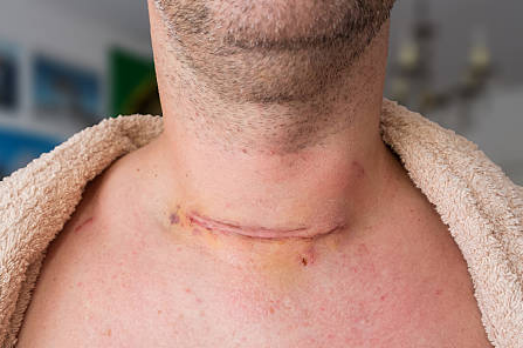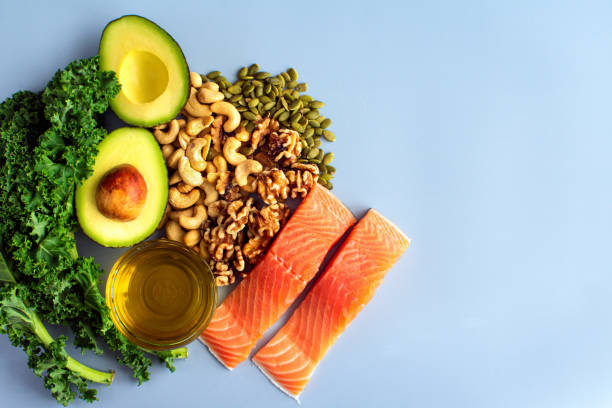A thyroidectomy is a surgical procedure to remove all or part of the thyroid gland, often performed to treat thyroid cancer, goiters, or hyperthyroidism. While the surgery itself is generally safe, post-operative symptoms like swelling, discomfort, and temporary voice changes are common. Swelling after thyroidectomy can be concerning for many patients, as it may cause tightness around the neck and mild discomfort.
Dr. Devendra Chaukar, a distinguished head and neck oncologist in Mumbai, explains:
“Swelling after thyroidectomy is usually temporary and part of the healing process. However, persistent swelling could signal complications like infection or fluid buildup. Early intervention ensures a smooth recovery and minimizes long-term concerns.”
With over two decades of experience, Dr. Chaukar specializes in thyroid, laryngeal, and salivary gland surgeries. He is dedicated to providing expert surgical care with a focus on preserving vital functions like speech and swallowing. His expertise in minimally invasive and robotic-assisted surgeries ensures precision, faster recovery, and better patient outcomes.

Swelling after thyroid surgery can be due to:
- Normal Post-Surgical Inflammation– Surgery disrupts tissues, causing localized swelling that usually subsides within a few weeks.
- Seroma Formation– Fluid accumulation under the skin can create a soft, swollen area. This is harmless but may require drainage if excessive.
- Hematoma– A collection of blood under the skin that can cause significant swelling and pressure. If severe, it requires immediate medical attention.
- Infection– Redness, warmth, and worsening swelling may indicate an infection that needs antibiotic treatment.
- Lymphatic Drainage Disruption– Removal of lymph nodes can temporarily affect fluid drainage, leading to swelling.
Most post-thyroidectomy swelling resolves with time. However, proactive management can speed up the recovery process.
Post-surgical swelling can be managed effectively with the right care and guidance. Consult a specialist to ensure a safe and smooth recovery.
Can the food you eat help reduce swelling after thyroidectomy? Let’s explore the best dietary choices for a faster recovery.
Are There Any Specific Foods or Diets That Can Help Reduce Swelling After Surgery?
A nutrient-rich diet can speed up healing and reduce inflammation. Here’s what you should focus on:
Foods That Help Reduce Swelling:

✔ Anti-inflammatory Foods – Include leafy greens, berries, turmeric, and ginger to reduce inflammation.
✔ Hydrating Foods – Cucumbers, watermelon, and citrus fruits help maintain fluid balance.
✔ Protein-rich foods – Eggs, fish, and lean chicken aid tissue repair.
✔ Foods rich in Vitamin C – Citrus fruits and bell peppers support wound healing.
✔ Omega-3 Fatty Acids – Found in salmon, walnuts, and flaxseeds, they help reduce post-surgical swelling.
Foods to Avoid:

❌ High-Sodium Foods – Processed foods and salty snacks can cause water retention and worsen swelling.
❌ Sugary and Fried Foods – Increases inflammation and slows down healing.
❌ Excessive Caffeine or Alcohol – Can dehydrate the body, making swelling worse.
A well-balanced diet, along with proper hydration, can accelerate your recovery after thyroidectomy.
Looking for simple and effective ways to manage post-surgical swelling? Let’s discuss some of the best techniques to speed up your recovery.
How Can I Reduce Swelling After Thyroidectomy?
Reducing swelling requires a combination of rest, home remedies, and medical guidance. Here are some effective strategies:
- Apply a Cold Compress
Using an ice pack (wrapped in a towel) for 10-15 minutes every few hours can help reduce swelling.
- Keep Your Head Elevated
Sleeping with your head slightly elevated (at a 30–45-degree angle) prevents fluid accumulation.
- Stay Hydrated
Drinking at least 7-8 glasses of water daily helps flush out excess fluids and reduce swelling.
- Avoid Straining Your Neck
Excessive talking, coughing, or lifting heavy objects can worsen swelling. Keep movements gentle.
- Take Prescribed Medications
Doctors often recommend anti-inflammatory medications or pain relievers to manage swelling. Follow your prescription carefully.
“Proper post-surgery care, including hydration, gentle movement, and prescribed medications, can significantly minimize swelling and accelerate healing,” advises Dr. Devendra Chaukar.
Worried that your swelling might be more than just normal post-surgical healing? Let’s explore when it’s time to seek medical attention.
For expert thyroid cancer treatment and post-surgical care, consult a skilled head and neck oncologist.
When to Consult a Doctor?
While mild swelling is normal, you should seek immediate medical help if you experience:
- Sudden, Severe Swelling– This could indicate a hematoma, which requires prompt intervention.
- Difficulty breathing or swallowing– This may be due to internal swelling or fluid accumulation.
- Pus or Foul-Smelling Discharge– A sign of infection needing antibiotic treatment.
- Persistent or Worsening Pain– This could indicate an underlying issue.

- Fever above 100.4°F (38°C)– Suggests an infection.
Ignoring these symptoms could lead to serious complications. So don’t hesitate to contact your healthcare provider if needed.
Conclusion
Swelling after thyroidectomy is a common post-surgical response that usually subsides within a few weeks. By maintaining a healthy diet, staying hydrated, and using cold compresses, you can significantly reduce discomfort. However, if symptoms persist or worsen, seeking medical advice is crucial. Recognizing the warning signs and consulting a seasoned specialist like Dr. Devendra Chaukar can ensure a smooth recovery.
Frequently Asked Questions:
How long does swelling last after a thyroidectomy?
Swelling typically subsides within 2-3 weeks. However, minor residual swelling may last up to a month.
What are the untreated complications of hypoparathyroidism?
If not treated, it can potentially cause osteoporosis, cataracts, arrhythmia, and neurological conditions such as seizures.
Can I take painkillers for swelling?
Your doctor may prescribe anti-inflammatory medications or pain relievers to manage swelling.
How soon can I resume normal activities?
Most patients can return to light activities within a week, but avoid strenuous activities for at least 2-3 weeks.
Can I apply heat to reduce swelling?
No, cold compresses are recommended. Heat can worsen inflammation in the early recovery phase.
Can swelling after thyroidectomy cause breathing difficulties?
In rare cases, excessive swelling or a hematoma can obstruct the airway. Seek urgent medical attention if you experience breathing issues.
Should I avoid salt after surgery?
Excess salt can lead to fluid retention, so a low-sodium diet is beneficial.
Reference links:
https://pmc.ncbi.nlm.nih.gov/articles/PMC4654170/
https://europepmc.org/article/pmc/4654170
Disclaimer: The content shared on this page is for informational purposes and not for promotional use.

Dr Devendra Chaukar
Dr. Devendra Chaukar is a renowned Head and Neck Surgical Oncologist with over 20 years of experience in treating complex head and neck cancers. A graduate of Tata Memorial Hospital, Mumbai, he specializes in minimally invasive surgeries and organ-preserving treatments. Dr. Chaukar is deeply committed to patient-centric care and advancing cancer treatment through research and education.


Recent Comments